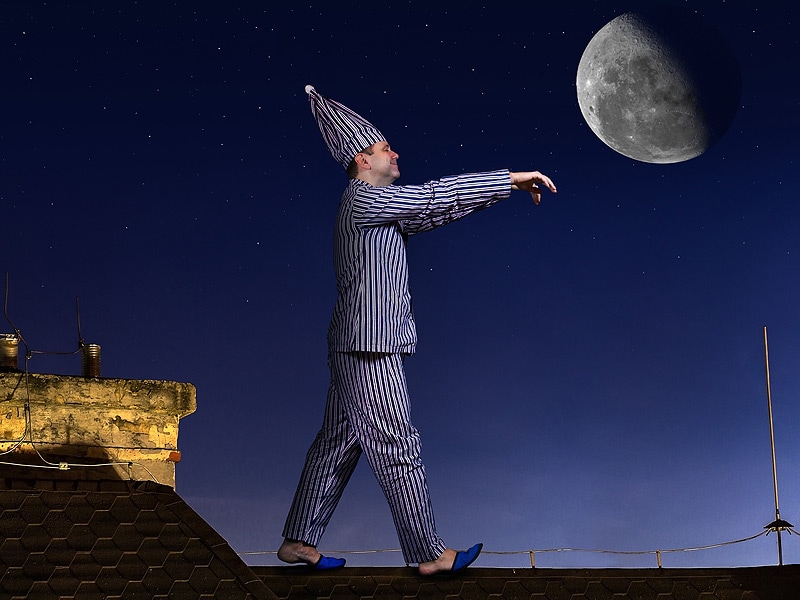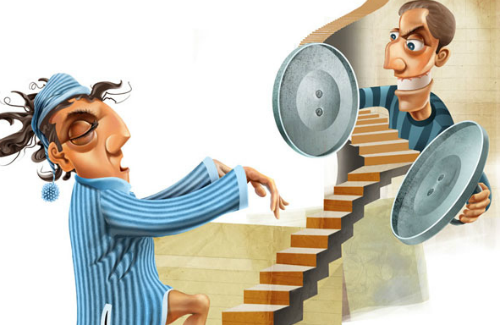One night, my high school roommate suddenly said: “Let’s go for a barbeque.” I was surprised and I said to him” Are you mad?” He replied to me” No, I am not.” However, I found that he was actually sleeping, but he could reply to me! This was the first time I saw a sleepwalker.
What is sleepwalking?
Sleepwalking refers to somnambulism or noctambulism, people in deep sleep will walk or perform other activities including eating, talking or cleaning. Some activities can be dangerous such as driving or even homicide.
How to explain sleepwalking?
There are 5 stages of sleep during a sleep cycle which lasts 90 minutes. During the first four stages, we have non-rapid eye movement (NREM) sleep, and rapid eye movement (REM) sleep occurs during the fifth stage. The sleepwalk usually occurs at stages 3&4. During this time, our brainwave is the slowest and we are in the deepest sleep. During REM sleep, our brain activity is much more active and our body muscles become temporarily paralyzed. Therefore most sleepwalking does not occur in REM sleep because we cannot walk when our muscles cannot move. People rise from their beds when their brain attempts to go straight from NREM sleep to being awake instead of completing the rest of the sleep cycle. Sleepwalking occurs mostly among children, some scientists think children are more likely to have sleepwalking because their brains are not fully developed. The growth hormones are the triggers causing the children to rise. It may also be related to inhibitory neurotransmitters. A neurotransmitter is called GABA which stifles the brains motor system. For adults, this neurotransmitter usually inhibits the body’s motion well. However, for kids, the neurons that release the neurotransmitter are not fully developed yet so their motor system may still be active and this will lead to sleepwalking.
Is it common?
Dr. Plazzi and four colleagues did research about sleepwalking, their results showed:
- Sleepwalking is most likely due to stress
- Sleepwalking tends to run in families.
- Sleepwalking occurs after 2-3 hours into sleep
- Thirty percent of children between 5-12 experience at least one sleepwalking episode. Most children are between 4-6 years old.
- Among 250 adults, one will have sleepwalks once a week.
As shown through this video, it talks about why we should not wake up a sleepwalker.
Video was taken from:https://www.youtube.com/watch?v=loCz8Rwaidk&t=104s
What should we do?
We have heard that waking up a sleepwalker will cause them to have a heart attack, brain damage. However, this is a misconception since there is no evidence that waking up a sleepwalker will cause them any harm. In fact, the one who tries to wake up a sleepwalker may be in danger because the sleepwalkers may react in unpredictable ways including attacking the one who tries to wake up them. Instead of waking up the sleepwalkers, what we are supposed to do is to gently lead them by the arm to guide them back to bed.
— ZIJIE(JERRY) LIN





